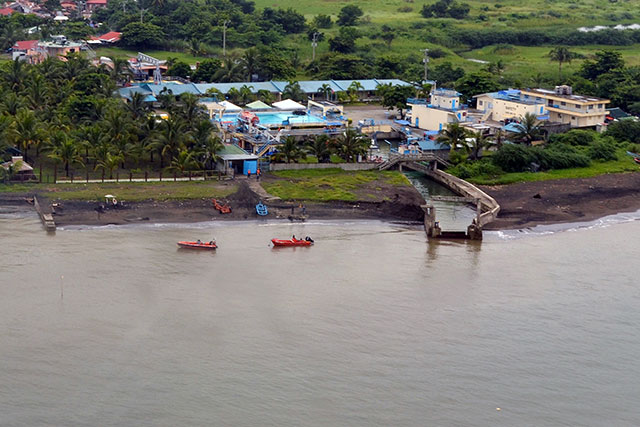SUMMARY
This is AI generated summarization, which may have errors. For context, always refer to the full article.

MANILA, Philippines – President Benigno Aquino III wants a speedy clean-up of the Manila Bay oil spill affecting coastal villages in 3 towns in Cavite, deputy presidential spokesperson Abigail Valte said on Saturday, August 10.
READ: 500,000 liters of oil stain Manila Bay
The Philippine Coast Guard (PCG), local government officials and representatives of private corporations met on Friday to coordinate on fast clean-up operations.
“They agreed to dispatch additional tugboats and marine environment personnel to help in the clean-up operations,” Valte said.
Oil companies who were represented at the meeting agreed to focus on the clean-up tasks.
She stressed that all efforts would focus on containing the 500,000 liters of diesel oil leaked into Manila Bay before finding who is accountable for the spill.
Valte added that the national government is ready to assist LGUs to ensure the safety of people and marine resources.
“We’ll get in touch with the BFAR on what can be done, considering that coastal barangays are the ones affected, what we can do to help,” Valte said.
PCG agreed to form an adjudication team to handle the investigation on who is responsible for the spill.
‘Not so alarming’
Cavite Governor Juanito Victor Remulla told Rappler that the situation is “not as alarming” as initially reported. Despite PCG reports that 500,000 liters of oil was leaked, he said the number is closer to 90,000 liters.
READ: Dead fish after huge Manila Bay oil spill
PCG used booms or floating barriers to contain the spill while allowing the oil to evaporate from the sun’s heat.
According to Remulla, 98% of the oil has already evaporated.
He says that most of the smell of oil that continues to linger in affected barangays comes not from the sea, but from homes of residents who collect the oil from the water using bottles and jars and leave them in open pots.
Food for oil
In Rosario, Mayor Jose Ricafrente started a food-for-work exchange program that paid residents who collect spilled oil from the sea with food in exchange for their efforts.
“It is not a very safe thing to do,” said Remulla. He said the oil is combustible and highly volatile. It poses health risks to the residents collecting the oil without specialized equipment.
But Ricafrente said, “Wala namang pwersahan dito (No one is forcing them). It’s all voluntary. Protected naman sila, may gloves at mask (They are protected, with gloves and masks).”
At least 3,000 families are affected by the oil spill that spread to an area of 25 kilometers by 15 kilometers.
Because of the amount of oil spilled, PCG spokesperson Armand Balilo could not say when clean-up operations would be completed.
According to Ricafrente, the most affected villages are Wawa 1, Wawa 2, Wawa 3, Muzon 1, Muzon 2 and Kanluran. Most of the residents of these villages base their livelihood on the abundant fishing grounds surrounding their villages.
Bureau of Fisheries and Aquatic Resources chief Asis Perez banned the harvesting and sale of shellfish from the area to prevent people from ingesting oil. – Rappler.com
Add a comment
How does this make you feel?
There are no comments yet. Add your comment to start the conversation.